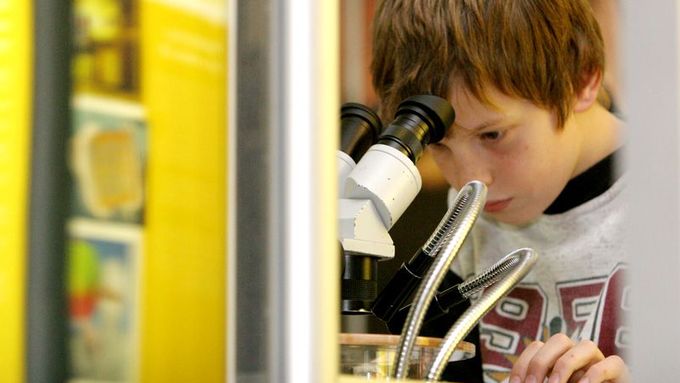Prague - The plan to overhaul research funding, which Prime Minister Mirek Topolánek is proposing, did not arouse much exitement in those who would be most directly affected.
Rector of Charles University, Václav Hampl, was rather skeptical: "The proposal correctly identifies some of the important problems of the current research funding system. But we strongly urge for it to be completely reworked and proposed again."
In fact, the whole of the Czech Rectors Conference agrees. The association of university heads delivered a resolution stating that the proposed changes are so major that the short-term deadlines for the reform's enforcement are "completely inappropriate."
Main objections against the reform
The government, though, wants to begin writing the final version of the reform this spring.
"Reforming research proceedings is essentially a good idea, but if it doesn't work, it can make things even worse," carefully notes Václav Pačes, chairman of the Academy of Sciences. In his opinion, the principal aims of the reform are not clear enough to tell what the actual effects of the new law will be.
Try not to make it worse
"The government will certainly pass the reform. It does not have to pay any heed to the remarks of the universities or the Academy of Sciences," predicts senator Jiří Zlatuška, who is also the former president of Masaryk University in Brno.
Zlatuška does not think that academics will protest too much: "There is an opinion among people in universities that it is better not to irritate the government. Many fear that any other possibilities would be worse. The Academy of Sciences is just happy that no laws are being broken."
Who will lose money
The cabinet will not actually increase funding for research, which currently amounts to CZK 24 billion. It also plans to continue to give the same amount in funds to the Czech Science Agency, which distributes grants to individual basic-research projects.
It also wants to increase support for applied research. These projects should be financed by a proposed Technological Agency. It will only provide grants, though, for projects which already have support from private firms.
Many academics do not like the fact that part of the money which will go to the Technological Agency will be taken from the funding previously used for financing the administration of research institutes and universities. The worry is that the latter may not have enough money for things like research practice for students.
Finding the right criteria
Václav Pačes considers the biggest problem of the reform to be the system with which research institutes are evaluated and then allotted funds based on that rating.
The number and quality of publications is the deciding criterion for basic research. "It is still unclear how social sciences are going to be judged," says Pačes. Natural scientists have the opportunity to publish their works in numerous international journals, while most of the academics in social sciences do not have that option.
Zlatuška agrees, adding that there are many more opportunities to publish in fields like chemistry and physics, while for computer science there are fewer possibilities. One cannot compare the success of publications in these fields.
It is important to use more criteria for evaluation. It also does not make sense to rely on the results of a single database of scientific articles, in this case Thomson ISI.
We're not America
Many experts are also not clear about how the government will make sure that Czech firms will use research that is done by Czech scientists.
"It is naïve to think that government policies will make sure that it happens," mentions Zlatuška. In the United States, for example, research universities are able to make contracts with firms themselves, and cooperate with them to create new technology."But this could only work within a more diverse, and relatively closed off, environment," he explains. The chances of a Czech university finding a Czech firm to partner with are much smaller than in America.
Many academics think that instead of forcing Czech firms to cooperate with universities, it would be more effective to work on training students in basic and applied research. Then foreign investors will be able to seek out their expertise and work capacity.
Pačes is similarly skeptical on the issue. "Supporting applied research exclusively would mean developing better shampoos and shirt dyes. Real technological breakthroughs come, without exception, from basic research," says the head of the Academy of Sciences, recalling the discoveries made by Otto Wichterle, chemist who invented contact lenses, and Antonín Holý, who developed internationally patented drugs against HIV/AIDS, Hepatitis B and other diseases.




